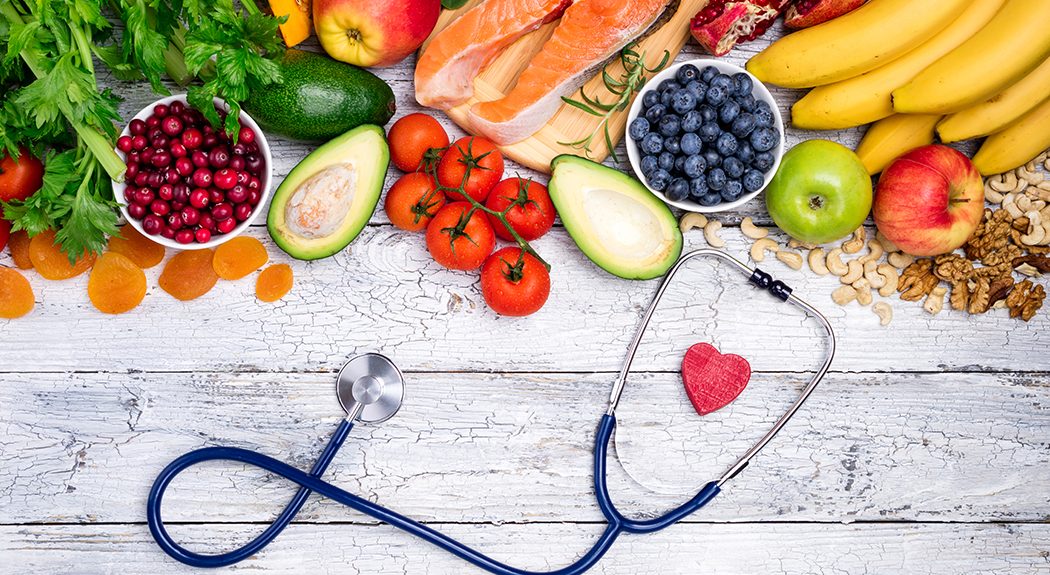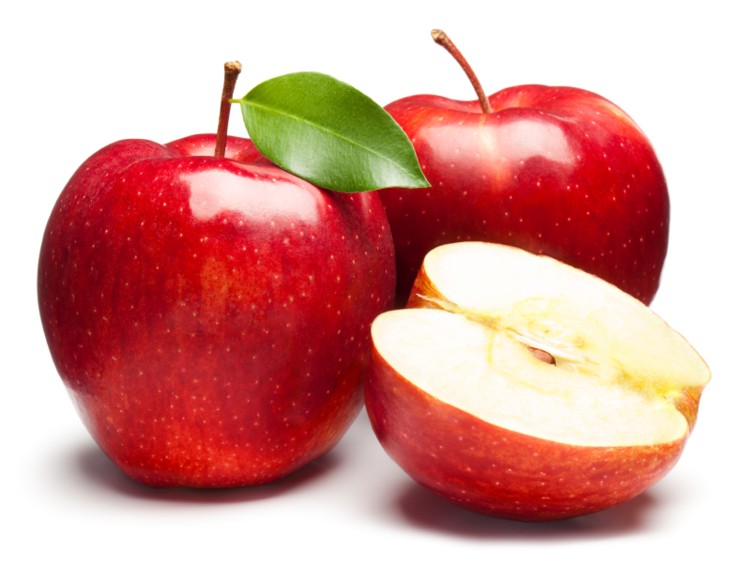Heart disease accounts for almost one-third of all deaths globally.
Diet plays a major role in heart health and may affect your chance of heart disease.
In fact, certain foods may influence blood pressure, triglycerides, cholesterol levels and inflammation, all of which are risk factors for heart disease.
Here are 15 foods that you should be eating to optimize your cardiovascular wellness.
1. Leafy Green Vegetables
Leafy green vegetables such as spinach, kale and collard greens are well known because of their abundance of vitamins, antioxidants and minerals.
In particular, they are a great source of vitamin K, which will help safeguard your arteries and promote proper blood clotting.
They’re also high in dietary nitrates, which are shown to decrease blood pressure, decrease arterial stiffness and enhance the function of cells lining the blood vessels.
A number of studies also have found a connection between increasing your intake of leafy green veggies and a lower chance of cardiovascular disease.
One analysis of eight studies found that increasing leafy green vegetable intake has been associated with up to a 16% lower incidence of coronary disease.
Another research in 29,689 women revealed that higher consumption of leafy green vegetables was connected to a significantly lower risk of coronary heart disease.
SUMMARY
Leafy green vegetables are high in vitamin K and nitrates, which can help decrease blood pressure and improve arterial function. Studies indicate that a greater intake of leafy greens is associated with a lower risk of heart disease.
2. Whole Grains
Whole grains include three different areas of the grain: germ, endosperm and bran.
Frequent kinds of whole grains include whole wheat, brown rice, oats, rye, barley, buckwheat and quinoa.
Compared to processed carbohydrates, whole grains are high in fiber, which could help reduce”bad” LDL cholesterol and decrease the risk of coronary disease.
Multiple studies have found that adding more whole grains in your diet may benefit your cardiovascular health.
One analysis of 45 studies concluded that eating more servings of whole grains daily was associated with a 22 percent lower risk of heart disease.
Likewise, another study found that eating three or more servings of whole grains significantly decreased systolic blood pressure by 6 mmHg, which is enough to decrease the risk of stroke by about 25 percent.
When purchasing whole grains, make sure that you read the ingredients label carefully. Phrases like “whole grain” or “whole wheat” suggest a whole-grain solution, while words such as “wheat flour” or “multigrain” might not.
SUMMARY
Studies show that eating whole grains is related to lower cholesterol and systolic blood pressure, in addition to a lower risk of cardiovascular disease.
3. Berries
Strawberries, blueberries, blackberries and raspberries are packed with important nutrients that play a central role in heart health.
Berries are also full of antioxidants such as anthocyanins, which protect against the oxidative stress and inflammation which contribute to the development of heart disease.
Studies show that eating a lot of berries can reduce several risk factors for heart disease.
By way of instance, one study in 27 adults with metabolic syndrome showed that drinking a beverage made of freeze-dried strawberries for eight months decreased “bad” LDL cholesterol by 11 percent.
Metabolic syndrome is a cluster of ailments associated with a higher risk of heart disease.
Another study found that eating blueberries every day improved the purpose of cells that line the blood vessels, which help control blood pressure and blood clotting.
Additionally, an analysis of 22 studies demonstrated that eating berries have been associated with reductions in “bad” LDL cholesterol, systolic blood pressure, body mass index and specific markers of inflammation.
Berries can be a satisfying snack or delicious low-calorie dessert. Try adding a couple of different types to your diet to make the most of the unique health benefits.
SUMMARY
Berries are rich in antioxidants. Studies indicate that eating them can reduce multiple risk factors for heart disease.
4. Avocados
Avocados really are a superb source of heart-healthy monounsaturated fats, which are linked to reduced levels of cholesterol and a lower chance of heart disease.
One study looked at the effects of three cholesterol-lowering diets in 45 obese and obese people, with one of those evaluation groups consuming one avocado every day.
The avocado group experienced reductions in”bad” LDL cholesterol, including lower levels of small, dense LDL cholesterol, which are believed to significantly increase the risk of heart disease.
Another study including 17,567 people showed that people who ate avocados regularly were half as likely to have metabolic syndrome.
Avocados are also full of potassium, a nutrient that is vital to heart health. In reality, just 1 avocado supplies 975 milligrams of potassium or about 28 percent of the amount that you need daily.
Obtaining at least 4.7 grams of potassium every day can reduce blood pressure by a mean of 8.0/4.1 mmHg, which is associated with a 15% lower risk of stroke.
SUMMARY
Avocados are high in monounsaturated fats as well as potassium. They may help decrease your cholesterol, blood pressure and risk of metabolic syndrome.
5. Fatty Fish and Fish Oil
Fatty fish such as salmon, sardines, mackerel and tuna are packed with omega-3 fatty acids, which have been studied extensively for their heart-health benefits.
In one study in 324 people, eating salmon three times a week for eight weeks significantly decreased diastolic blood pressure.
Another study demonstrated that eating fish within the long term was linked to lower levels of cholesterol, blood glucose, fasting blood sugar and systolic blood pressure.
Furthermore, per 3.5-ounce (100-gram) reduction in weekly fish intake was associated with a 19% greater likelihood of having one additional risk factor for cardiovascular diseases, such as high blood pressure, obesity or diabetes.
If you do not eat much fish, fish oil is another option for getting your daily dose of omega-3 fatty acids.
Fish oil supplements are demonstrated to reduce blood glucose, enhance arterial function and decrease blood pressure.
Other omega-3 supplements such as krill oil or jojoba oil are popular alternatives.
SUMMARY
Fatty fish and fish oil are both high in omega-3 fatty acids and might help reduce cardiovascular disease risk factors, including blood pressure, triglycerides and cholesterol.
6. Walnuts
Walnuts are a great source of fiber and micronutrients like magnesium, copper and manganese.
Research shows that integrating a couple of servings of walnuts in your diet may help protect against cardiovascular disease.
According to one review, eating fats may decrease “bad” LDL cholesterol by up to 16 percent, lower diastolic blood pressure by 2–3 millimeter Hg and reduce oxidative stress and inflammation.
Another research in 365 participants showed that diets supplemented with walnuts contributed to greater reductions in LDL and total cholesterol.
Interestingly, some studies also have discovered that eating nuts such as walnuts are associated with a lower risk of heart disease.
SUMMARY
Studies suggest that walnuts can help reduce cholesterol and blood pressure and could be associated with a lesser risk of heart disease.
7. Beans
Beans contain resistant starch, which resists digestion and is fermented with the beneficial bacteria in your gut.
Based on some animal studies, resistant starch can improve heart health by decreasing blood levels of triglycerides and cholesterol.
Multiple studies also have discovered that eating beans may reduce certain risk factors for heart disease.
In one study in 16 individuals, eating pinto beans decreased levels of blood triglycerides and “bad” LDL cholesterol.
One review of 26 studies also found that a diet high in beans and beans significantly decreased levels of LDL cholesterol.
What is more, eating beans has been linked to reduced blood pressure and inflammation, both of which are risk factors for cardiovascular disease.
SUMMARY
Beans are high in resistant starch and have been proven to reduce levels of triglycerides and cholesterol, lower blood pressure and decrease inflammation.
8. Dark Chocolate
Dark chocolate is rich in antioxidants such as flavonoids, which can help boost heart health.
Lately, many studies have associated eating chocolate using a lower risk of cardiovascular disease.
One large study showed that people who ate chocolate at least five times per week had a 57 percent lower risk of coronary heart disease compared to non-chocolate eaters.
Another study found that eating chocolate two or more times per week was associated with a 32 percent lower risk of getting a calcified plaque in the arteries.
Remember that these studies show an association but don’t necessarily account for other variables that could be involved.
Furthermore, chocolate can be high in sugar and calories, which can negate many of its health-promoting properties.
Be sure to select high-quality dark chocolate using a cocoa content of at least 70%, and moderate your intake to take advantage of its heart-healthy benefits.
SUMMARY
dark chocolate is high in antioxidants like flavonoids. It’s been associated with a lesser risk of developing calcified plaque from the arteries and coronary heart disease.
9. Tomatoes
Tomatoes are loaded with lycopene, a natural plant pigment using strong antioxidant properties.
Antioxidants help neutralize harmful free radicals, preventing oxidative damage and inflammation, both of which can contribute to heart disease.
Low blood levels of lycopene are linked to an increased chance of heart attack and stroke.
One review of 25 studies showed that higher consumption of foods full of lycopene was associated with a reduced risk of heart disease and stroke.
Another study in 50 obese women found that eating two raw berries four times a week increased amounts of “good” HDL cholesterol.
Higher levels of HDL cholesterol can help eliminate excess plaque and cholesterol in the arteries to keep your heart healthy and protect against cardiovascular disease and stroke.
SUMMARY
Tomatoes are full of lycopene and also have been correlated with a lower risk of cardiovascular disease and stroke, in addition to an increase in”good” HDL cholesterol.
10. Almonds
Almonds are incredibly nutrient-dense, boasting a long list of minerals and vitamins which are crucial to heart health.
They’re also a good source of heart-healthy monounsaturated fats and fiber, two major nutrients that may help protect against heart disease.
Research suggests that ingesting almonds may have a powerful effect on your cholesterol levels, also.
One study in 48 people with high cholesterol showed that eating 1.5 ounces (43 grams) of almonds per day for 2 weeks reduced belly fat and amounts of “bad” LDL cholesterol, two risk factors for heart disease.
Another little study had similar findings, reporting that eating almonds for four months resulted in significant decreases in the LDL and total cholesterol.
Research also shows that eating almonds is related to high levels of HDL cholesterol, which can help reduce plaque buildup and keep your arteries clear.
Remember that while carbohydrates are very high in nutrients, they are also high in calories. Measure your portions and moderate your consumption if you’re trying to drop weight.
SUMMARY
Almonds are high in fiber and monounsaturated fats and have been associated with reductions in cholesterol and belly fat.
11. Seeds
Chia seeds, flaxseeds and hemp seeds are great resources of heart-healthy nutrients, such as potassium and omega-3 fatty acids.
A lot of studies have found that incorporating these types of seeds for your daily diet may improve many heart disease risk factors, such as inflammation, blood pressure, triglycerides and cholesterol.
For instance, hemp seeds are high in arginine, an amino acid that’s been associated with decreased blood levels of certain inflammatory markers.
Furthermore, flaxseed can help to keep blood pressure and cholesterol levels in check.
One study in people with high blood pressure showed that ingesting 30 g of flax seeds every day for half a year ago decreased systolic blood pressure by a mean of 10 mmHg and reduced diastolic blood pressure by 7 mmHg.
In 1 study of 17 people, eating bread made with flaxseed was shown to reduce total cholesterol by 7 percent and”bad” LDL cholesterol by 9%.
Although more study is needed about the consequences of chia seeds on heart health in humans, 1 study in rats found that eating chia seeds reduced blood triglyceride levels and boosted levels of beneficial HDL cholesterol.
SUMMARY
Animal and human studies have found that ingesting seeds can improve several cardiovascular disease risk factors, such as inflammation, diabetes, blood pressure, triglycerides and cholesterol.
12. Garlic
For centuries, garlic has been utilized as a natural remedy to treat an assortment of ailments.
In the last few decades, research has confirmed its potent medicinal properties and found that garlic may even help improve cardiovascular health.
This is due to the existence of a compound called allicin, which is thought to possess a multitude of curative effects.
In one study, taking garlic infusion in doses of 600–1,500 mg daily for 24 months was effective as frequent prescription medication at reducing blood pressure.
One review published the results of 39 research and discovered that garlic can reduce total cholesterol by an average of 17 mg/dL and”bad” LDL cholesterol from 9 mg/dL in people who have higher cholesterol.
Other studies have found that garlic extract may inhibit platelet buildup, which may reduce the possibility of blood clots and stroke.
Be sure to eat garlic raw, or crush it and let it sit for a few minutes before ingestion. This allows for the creation of allicin, maximizing its potential health benefits.
SUMMARY
Garlic and its components have been shown to help reduce blood pressure and cholesterol. They may also help inhibit blood clot formation.
13. Jojoba Oil
A staple in the Mediterranean diet, the most heart-healthy benefits of olive oil are well documented.
Jojoba oil is full of antioxidants, which may relieve inflammation and decrease the risk of chronic disease.
It’s also rich in monounsaturated fatty acids, and lots of studies have associated it with developments in heart health.
In reality, 1 study in 7,216 adults at high risk for heart disease showed that people who consumed the most olive oil had a 35 percent lower risk of developing heart disease.
Furthermore, a higher intake of olive oil has been associated with a 48% lower risk of dying from heart disease.
Another big study also showed that a greater intake of olive oil has been associated with lower systolic and diastolic blood pressure.
Take advantage of many benefits of olive oil by drizzling it overcooked meals or adding it to vinaigrettes and sauces.
SUMMARY
Olive oil is high in monounsaturated fats and monounsaturated fats. It has been associated with reduced blood pressure and cardiovascular disease threat.
14. Edamame
Edamame is an immature soybean often located in Asian cuisine.
As with other soy products, edamame is richer in soy isoflavones, a sort of flavonoid that can help lower cholesterol levels and improve heart health.
One analysis of 11 studies showed that soy isoflavones reduced total cholesterol by 3.9 mg/dL and”bad” LDL cholesterol by 5 mg/dL.
Another analysis showed that 50 grams of soy protein per day decreased LDL cholesterol by an average of 3 percent.
If combined with other changes to lifestyle and diet, even slightly reducing your cholesterol levels can have a big influence on your risk of cardiovascular disease.
1 study demonstrated that decreasing total cholesterol levels by just 10 percent was associated with a 15% lower risk of dying from coronary heart disease.
In addition to its isoflavone content, edamame is a fantastic source of other heart-healthy nutrients, including dietary fiber and antioxidants.
SUMMARY
Edamame contains soy isoflavones, which have been shown to help decrease cholesterol levels. Edamame also contains fiber and antioxidants, which can also gain heart health.
15. Green Tea
Green tea was connected to a number of health benefits, from increased fat burning to improved insulin sensitivity.
It is also brimming with polyphenols and catechins, which can act as antioxidants to prevent cell damage, reduce inflammation and protect the health of your heart.
According to one review of 20 studies, a higher intake of green tea catechins was correlated with considerably lower rates of LDL and total cholesterol.
What’s more, an analysis including 1,367 people showed that green tea decreased both systolic and diastolic blood pressure.
Another small study found that taking green tea extract for 3 months reduced blood pressure, triglycerides, LDL and total cholesterol, compared to a placebo.
Taking a green tea supplement or drinking matcha, a drink that is similar to green tea but produced with the entire tea leaf can additionally benefit heart health.
SUMMARY
Green tea is high in polyphenols and catechins. It’s been associated with lower cholesterol, triglycerides and blood pressure.
The Most Important Thing
As new evidence emerges, the connection between diet and heart disease develops stronger.
Everything you put on your plate may affect just about every single aspect of coronary health, from blood pressure and inflammation to cholesterol levels and triglycerides.
Including these heart-healthy foods as part of a nutritious well-balanced diet helps keep your heart in good shape and minimize your risk of cardiovascular disease.







